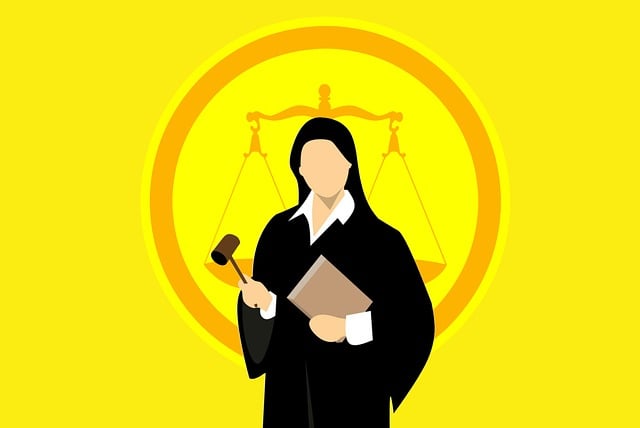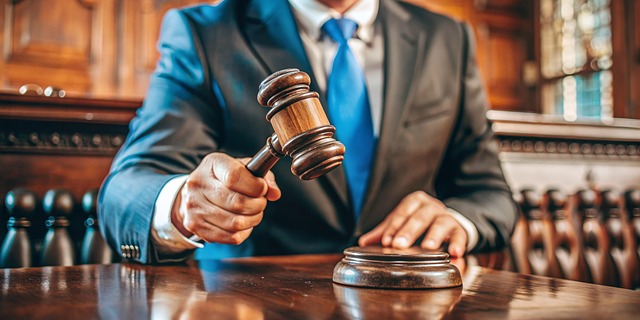Understanding constitutional rights empowers defendants to navigate criminal defense processes effectively. Defense attorneys play a crucial role in ensuring fair trial advocacy through strategic expertise and ethical conduct. Legal Aid provides vital support, guaranteeing access to justice for all. Fair trial advocacy involves meticulous evidence review, powerful legal arguments, and ethical representation to achieve just outcomes.
In the intricate landscape of criminal defense, access to robust support is pivotal for ensuring a fair trial. This comprehensive guide delves into essential aspects of navigating legal processes, empowering both defenders and those they represent. From understanding fundamental rights to mastering evidence-based arguments, each section explores strategies vital for ethical and effective advocacy in the pursuit of justice. By embracing these principles, practitioners fortify the foundation of fair trial advocacy.
- Understanding Your Rights: A Foundation for Fair Trial Advocacy
- Navigating Complex Legal Procedures: Strategies for Defense Lawyers
- The Role of Legal Aid in Ensuring Access to Justice
- Building a Strong Case: Evidence and Legal Arguments
- Ethical Considerations: Upholding Integrity in Criminal Defense
Understanding Your Rights: A Foundation for Fair Trial Advocacy

Understanding your rights is a fundamental aspect of navigating criminal defense legal processes and ensuring a fair trial. Every individual accused of a crime has certain constitutional rights that protect them from arbitrary or unfair treatment. These rights serve as a cornerstone for effective legal representation and advocacy, enabling defendants to defend themselves adequately in court.
By being aware of their entitlements, such as the right to remain silent, the right to an attorney, and the right to a speedy trial, accused persons can actively participate in their defense. This knowledge empowers them to make informed decisions, communicate effectively with their legal counsel, and navigate the complexities of the criminal justice system with confidence. It fosters a sense of agency and ensures that the principles of fair trial advocacy are upheld throughout the legal process.
Navigating Complex Legal Procedures: Strategies for Defense Lawyers

Navigating complex legal procedures is a pivotal aspect of criminal defense practice, requiring lawyers to be adept strategists and agile problem solvers. Defense attorneys play a crucial role in ensuring their clients receive a fair trial, which involves mastering intricate rules and regulations that govern the criminal justice system. From pre-trial motions to cross-examining witnesses, each step demands meticulous preparation and a deep understanding of legal nuances.
To effectively advocate for their clients, defense lawyers must stay abreast of evolving case law, legislative changes, and procedural updates. They employ various strategies, such as thorough investigation, expert witness consultation, and robust argumentation, to challenge the prosecution’s evidence and protect their client’s rights. By prioritizing clear communication, ethical conduct, and a relentless pursuit of justice, defense attorneys contribute significantly to upholding the principles of fair trial advocacy.
The Role of Legal Aid in Ensuring Access to Justice

Legal Aid plays a pivotal role in ensuring that everyone, regardless of their financial status, has access to justice in criminal defense proceedings. It provides a crucial safety net by offering free or low-cost legal representation to individuals who might otherwise be unable to afford it. This is essential for maintaining a fair trial system, as it ensures that all parties have an equal opportunity to present their case and defend against accusations.
By advocating for those facing criminal charges, Legal Aid helps to safeguard fundamental rights and ensure the integrity of the legal process. These services cover a wide range, from initial consultations and case preparation to representation in court. This support is instrumental in navigating complex legal systems, enabling individuals to make informed decisions and ultimately achieve a fair trial outcome.
Building a Strong Case: Evidence and Legal Arguments

Building a strong case in criminal defense goes hand in hand with meticulous evidence collection and compelling legal arguments. Fair trial advocacy demands a thorough understanding of both the facts of the case and applicable laws. Lawyers must carefully review all available evidence, including witness testimonies, physical evidence, and documents, to identify key elements that support their client’s innocence or mitigate punishment.
Legal arguments should be structured around interpreting the law in favor of the defendant while addressing any potential contradictions or complexities within the evidence. Effective advocacy involves challenging the prosecution’s case at every step, questioning the reliability and admissibility of evidence, and presenting alternative explanations or reasonable doubts to sway the jury or judge towards a favorable outcome.
Ethical Considerations: Upholding Integrity in Criminal Defense

In the pursuit of justice, ethical considerations play a pivotal role in upholding the integrity of criminal defense. Lawyers advocating for their clients must navigate complex moral dilemmas, ensuring that the rights of the accused are protected while adhering to professional standards. This includes maintaining confidentiality, avoiding conflicts of interest, and prioritizing the best interests of the defendant.
Fair trial advocacy demands that legal professionals remain impartial, providing unbiased representation. They must ensure that evidence is presented truthfully and that any strategic decisions are in line with ethical guidelines. By upholding these principles, the criminal defense process remains a safeguard against arbitrary or unfair outcomes, ensuring that justice is served within the confines of a transparent and just legal system.














